Academic Enrichment News |
English Language Gender Lecture report
13 Nov 2023By Kathryne, Upper Sixth
Rebecca Gordon lectures in Social Science at the University of West Scotland. She specialises in Gender Politics and her research focuses on “political leadership for inclusive change”. She led a Gender workshop for our A-level English Language students who, as part of the course, explore identity through pieces of written text or speech and analyse them using theorists and language frameworks.
Rebecca introduced many theories surrounding gendered language in the media such as the Functionalist View of the Media, The Male Gaze (Mulvey, 1975), Social Constructionist Perspective and Communities of Practice (McConnell-Ginet, 2010).
The Functionalist View of the Media launched us into thinking about what current news we have consumed and how that can be characterised into an idea from this theory. An example is the Black Lives Matter protests in reaction to the murder of George Floyd in May 2020 – the media played a huge role in publicising these protests to utilise the “status conferral function” and the “enforced application of social norms function”. Both these aspects of the Functionalist View of the Media showed how the news can confer social status on public issues and create a collective moral panic.
After we discussed different aspects of the media and how they circled through our society, Rebecca asked us an overarching question – “Does media reflect or shape society?”. The discussion around this proved interesting as there isn’t a right or wrong answer. We explored factors that influenced our answers to this question such as the Male Gaze theory by Laura Mulvey. In 1975, she wrote an essay “Visual Pleasure and Narrative Cinema” which, simplified, showed that men are the watchers and women are the objects. The term scopophilia (the sexual pleasure of viewing and communicating through a patriarchal system) cemented the idea that women are the bearers of meaning and not the makers. The male gaze enjoys viewing women as objects to be looked at rather than subjectively and with their own voice – this can be seen in James Bond and Wonder Woman.
However, some movies subvert The Male Gaze such as Black Widow (2021) which portrayed Natasha Romanoff differently than in many of the Avengers and Captain America movies. In Captain America, the Winter Soldier (2014), Natasha is presented as a seductive assassin prowling around in a black leather body suit alongside the unrealistic use of makeup and styled hair. This is subverted in her own movie Black Widow where she does not have any makeup on, and her suit is adapted for realistic fighting. This subversion is rare yet is more commonly shown in language.
Rebecca introduced us to ‘Feminine’ and ‘Masculine’ language which explores the characteristics of language use and how they can be subverted. The theorists commonly applied are Otto Jespersen in ‘Language: It’s Nature, Development and Origin’ (1922) and Robin Lakoff in ‘Language and Woman’s Place’ (1975).
‘Feminine’ language from the perspective of Jespersen can be characterised as archaic. He states that “women link sentences with ‘and’ because they are emotional rather than ‘grammatical’ and ‘women use half-finished sentences because they speak before they have thought about what they will say’. In contrast, Lakoff believes woman are softer in their language – ‘use of hedging (phrases such as “kind of” and “it seems like”)’ and ‘use tag questions (“You’re going to dinner, aren’t you?”)’.
‘Masculine’ language incorporates other theorists such as Jennifer Coates (1980s) on the issue of topic management. She states that “men will often reject a topic of conversation introduced by women” and “men discuss ‘male’ topics – business, sports, and politics”. Rebecca added ideas such as “men interrupt more than women” and “men are direct/straight to the point”.
We studied these factors in different advertisements. The question of “Does media reflect or shape society” was prevalent in each contribution we gave to analysing the adverts. We looked at the “Paco Rabanne Invictus & Olympea Legend Advert” that embedded the stereotypes of language use – the women being physically portrayed as behind the man, the man having more screentime – showing he is the dominant, strong figure, the women riding on a white horse to symbolise purity and innocence etc.
The last ad that we looked at subverted the stereotypical view of men and women in our society. Gillette released a #MeToo advert replacing their tagline with “The best men can be”, highlighting the toxic masculinity prevalent in our society. The Guardian’s article “Gillette #MeToo razors ad on ‘toxic masculinity’ gets praise – and abuse” profiles leading figures expressing their disappointment with the ad such as Piers Morgan stating, “Let boys be damn boys”.
Rebecca Gordon delivered a wildly interesting workshop that highlighted the importance of exploring gendered language in the media. Her research into studies that focus on the ways language can produce and maintain sexism and gender bias cements the importance on the question “Does media reflect or shape society?”.

